This blog was updated in March 2025 to include 7 new translations!
Creating clinical practice guidelines (CPGs) for rehabilitation after ACL reconstruction1 2 is only half the battle; ensuring their dissemination and comprehension among end users is equally crucial. With 95% of the global population speaking languages other than English as their native tongue, translating these documents into multiple languages becomes imperative. This not only enhances accessibility, but also contributes to our mission of making high-quality healthcare information universally available.
The Need for Multilingual CPGs
Consider the global community of healthcare professionals—there are approximately 1.6 million registered physical therapists worldwide, in addition to the numerous other clinicians also involved in ACL rehabilitation. Assuming only 10% of these professionals read English-language articles or follow English scientific literature, the necessity of translating CPGs into other languages becomes evident. Without translation, a significant portion of these healthcare providers might miss out on the latest, evidence-based practices that are essential for optimal patient outcomes.
Our initiative to translate these texts stems from a deep understanding of the importance of education in one’s native language. We have entrusted this task to health professionals who bring their linguistic and cultural expertise to the table. The goal is to maintain the accuracy and integrity of the original English text, while ensuring cultural relevance and suitability within each translated version.
Our Commitment to Accessibility
Below we provide an infographic-based document of the English-original version, along with translations into several other languages. To date, our translated texts are available in French, Spanish, Portuguese, Arabic, Danish, Italian, Greek, Finnish, Persian, Bulgarian, Hungarian, Japanese, Romanian, Russian, Serbian, Thai, and Turkish.
Gratitude
Translating clinical practice guidelines for ACL reconstruction rehabilitation into multiple languages is a vital step towards ensuring equitable healthcare access and outcomes. We extend our heartfelt gratitude to all healthcare providers who have contributed their time and knowledge to this project.
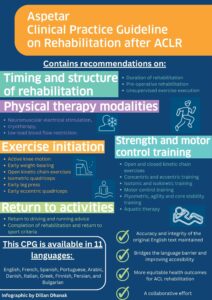
Alternative Versions:
English version
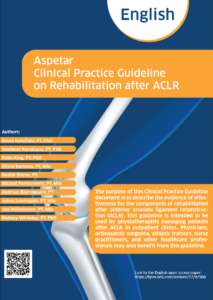
French version
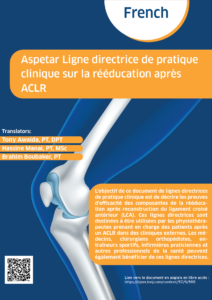
Spanish version
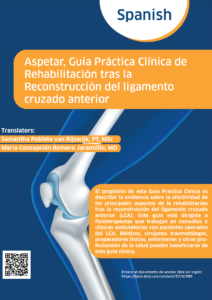
Portuguese version
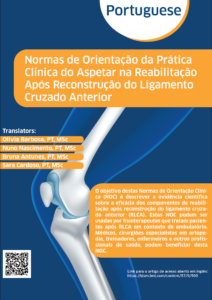
Arabic version
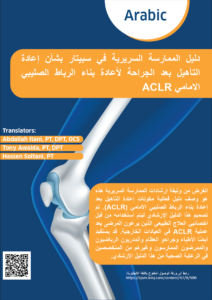
Danish version
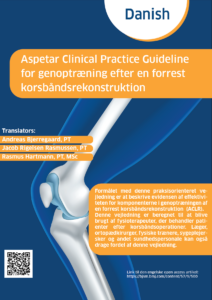
Italian version
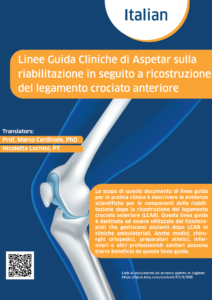
Greek version
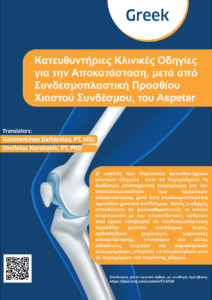
Finnish version
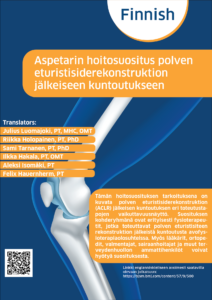
Persian version
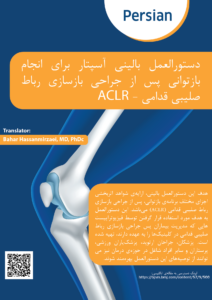
Bulgarian version
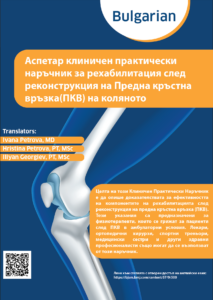
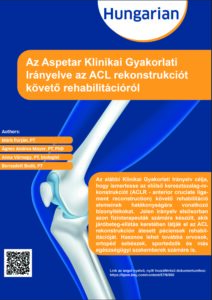
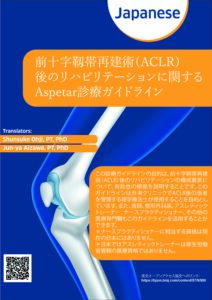
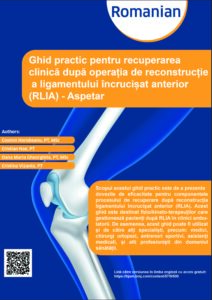
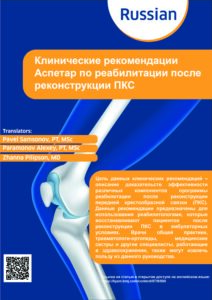
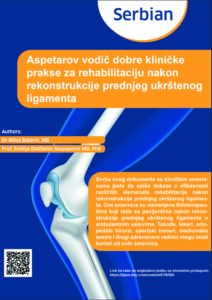
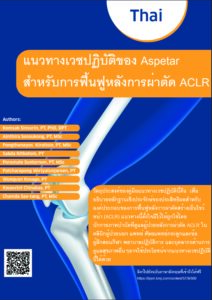
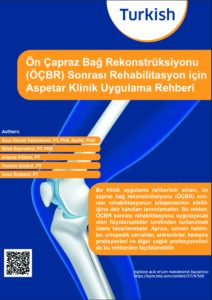
References
1. Kotsifaki R, Korakakis V, King E, et al. Aspetar clinical practice guideline on rehabilitation after anterior
cruciate ligament reconstruction. Br J Sports Med 2023;57(9):500-14.
2. Kotsifaki R, Korakakis V, King E, et al. Infographic. Aspetar clinical practice guideline on rehabilitation
after ACL reconstruction: an interactive figure. Br J Sports Med 2023;57(9):551-52.